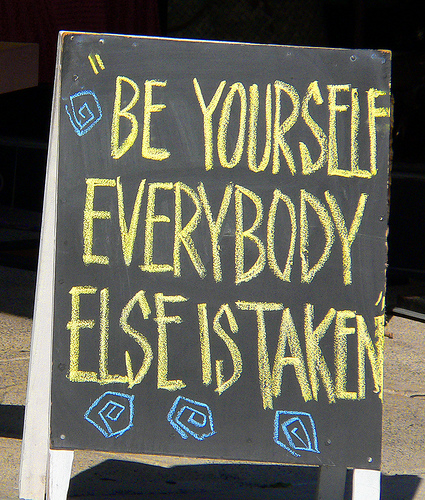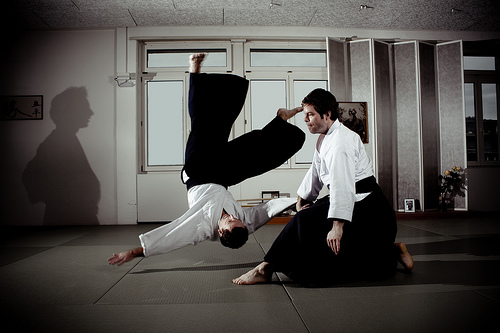
Last year, I remember thinking about the link between love and language learning. This year, I realized how much was missing from that discussion – it’s time to bring back desire into foreign language study!
Caveats, warnings and excuses
The discussion below is based on Esther Perel’s TED talk. If you want to learn more about her and her work, follow her on Twitter or (definitely) get her book, “Mating in Captivity.” The link between her work and language study is worth exploring. It’s really helpful if you watch the TED video before reading on, as I will refer to bits and pieces of this lecture.
[youtube id=”sa0RUmGTCYY” width=”600″ height=”350″]
The video above and the discussion below will refer to sex and eroticism – it’s all definitely SFW, but if you’re not OK with these topics today, you may want to wait for another update.
I’m sorry this was not posted on Valentine’s Day. I was busy doing something else!
Relationships and language study – mapping the forces
The crucial bit of insight – not just from a language enthusiast’s perspective – was the distinction Esther Perel makes between love and desire. Binary oppositions rarely work, but there’s lots more to this one – apart from love vs desire, the contrasting states and modes that follow are:
- – have vs want
- – care vs selfishness
- – security vs surprise
- – structure vs novelty
- – home vs journey
- – snugness vs exposure
- – comfort vs adventure
This will work, overlap, shape and control almost every relationship you can think of. In varying degrees, this will help bring out the best (or the worst) in people.
It stands to reason that these forces need to be at least considered when learning or teaching a foreign language. Let’s just imagine five situations where languages are learned, and see if we can identify the modes / forces at work there.
Contrasts in language learning – five simple stories
Mr A was always quietly optimistic about his English courses, and felt OK spending an hour every fortnight on revision, review of material and some memory games with his vocabulary. One Monday in May, he was promoted to an English-speaking department of his company – to begin work in July. A two-month business English crash-course followed – leading Mr A to believe that he knew nothing, that the task ahead was too complex and that he just couldn’t do it in the end. Mr A ended up feeling much worse about his English than initially – he declined the promotion on health reasons and never went back to learning English.
Ms B studies Latin. She will never meet a native speaker, nor will she ever have a life-changing conversation in the language. Every morning, she scrolls through pages and pages of digitized Latin manuscripts and looks for patterns corresponding to her research. She isn’t expecting to find anything new. Doesn’t even like Latin; it’s her work, that’s what won her the scholarship. When it’s done, it’s done.
Mr C learns a new language every three months. He starts from scratch every time. A lot of the motivation is to travel and meet new people, but Mr C also enjoys the new ways of thinking that new languages bring. It all felt chaotic at first, and Mr C can’t honestly say he remembers and feels confident in each language he studied – but now, with the benefit of hindsight, he knows that throwing himself into new conversations every day isn’t enough. His revision time is quiet, focused and nerdy – a complete opposite to the exuberant, chaotic interactions he has.
Ms D feels best in a library, surrounded with her Spanish-related books and media. She figures things out on her own, and doesn’t like it when people try to talk to her then. She reads in Spanish whenever she can and has a habit of playing Spanish TV in the background. Every now and then, Ms D will go to a Spanish-speaking meetup in her city and test the new things she learned. It’s stressful, but super exciting, and she always comes back with lots of new things to find out.
Mr and Ms E started their Yiddish classes when they realized how incomplete their family story was without it. They go to language classes and do their homework, if they have the time around their busy schedules. In class, they’re not really the best, and would probably not recommend their teacher to anyone. It’s the things that happen outside the classroom that make it memorable: the letters discovered in the attic, the discussion forums, message boards, the occasional (and emotional) trips abroad. It’s not all pleasant, but Mr and Ms E feel that this is the most important change they’ve made to their lives so far.
What moves you, what anchors you – and why should it?
I wouldn’t expect you to do well in an Arabic grammar test taken in the middle of a busy souk.
And I wouldn’t recommend going to the souk with a dictionary, trying to understand every single word.
This makes sense in the most vivid, extreme cases – but it needs to happen much more often. These are your key questions: is it love-time or desire-time for my language? Do I need to focus on what I have, or go and find the things I still want? Do I get enough of both states?
When it’s love-time for your language study, focus on care. Cherish and repair what you’ve got, stay comfortable with the sounds, phrases and skills you’ve learned. Enjoy the safe, the well-learned, the overall progress.
But when it’s desire-time, take your foreign language out. Have adventures with it. Be selfish about what you want, and enjoy the thrill it gives you when you use it. Relish in the new, the unexpected, the creative.
There’s more…
Esther Perel’s talk could be the source of many more articles like this! How does imagination feature in language learning (and why would it be similar to other fantasies)? What can we learn from trauma?
If you’ve got an idea here, let us know below!
(Photo credit: Jeyheich via Compfight)
Wiktor (Vic) Kostrzewski (MA, DELTA) is an author, translator, editor and project manage based in London. When he works, he thinks about languages, education, books, EdTech and teachers. When he doesn’t work, he probably trains for his next triathlon or drinks his next coffee.
BRAVE Learning (formerly known as 16 Kinds) is a lifelong learning and productivity blog. If you enjoy these posts, please check out one of my books and courses.
My recent publications, and my archive, is now all available on my new project: PUNK LEARNING. Hope to see you there!












